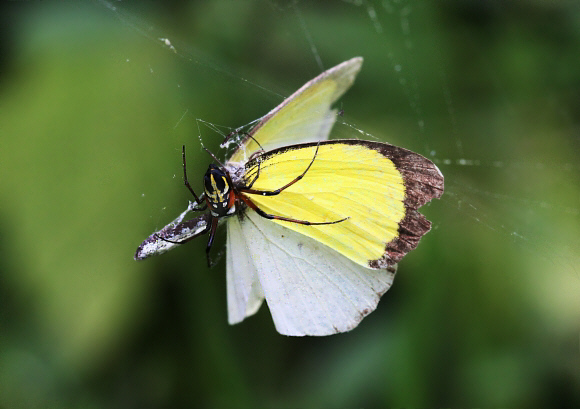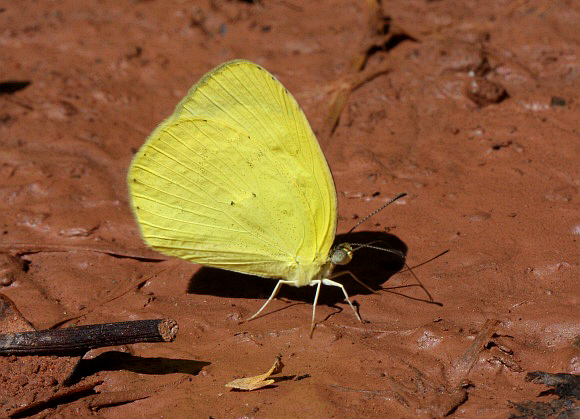
Introduction
The 12 species which are currently placed in the genus Pyrisitia were originally included within the pan-tropical genus Eurema.
These smallish butterflies are characterised by having yellow, orange or white uppersides, with dark apical markings. The forewings have a strongly curved costa, and in most species have a squarish apex. The hindwings are rounded in most species.
Pyrisitia venusta is found from Costa Rica to Colombia, east to Guyana and south to Ecuador, Peru, Bolivia and Argentina. It also occurs on Jamaica, the Dominican Republic and Trinidad.
Habitats
This is a lowland species found in disturbed grassy habitats including forest clearings, roadsides and riverbanks at elevations between sea level and about 1000m.
Lifecycle
To be completed.
Adult behaviour
Males are usually encountered singly, or occasionally in two’s or three’s, when imbibing dissolved minerals from damp ground at the edge of ditches or roadside banks in lightly forested areas.
Females are often seen nectaring at flowers along roadsides and riverbanks, or exploring sunny wood edge habitats in search of egg-laying sites.
The flight is fluttery but fairly rapid, and close to the ground.

